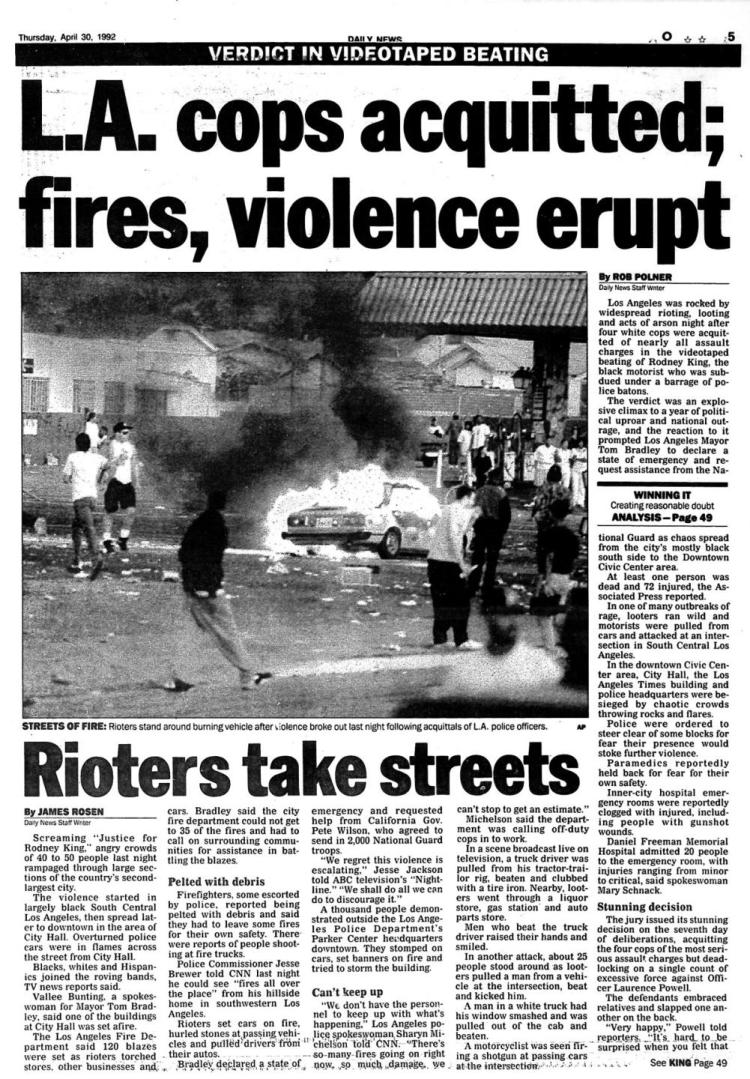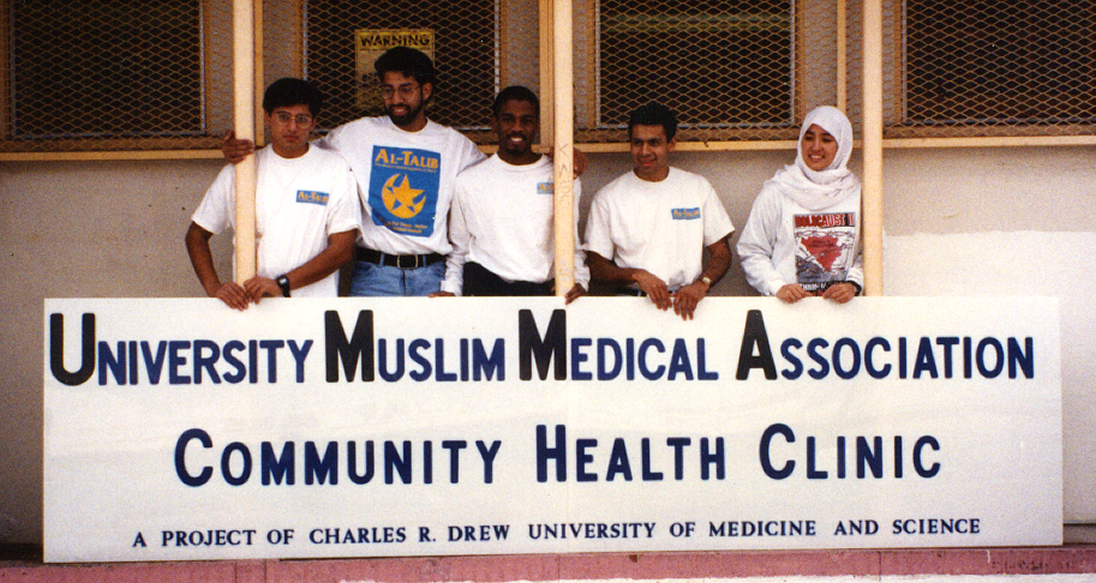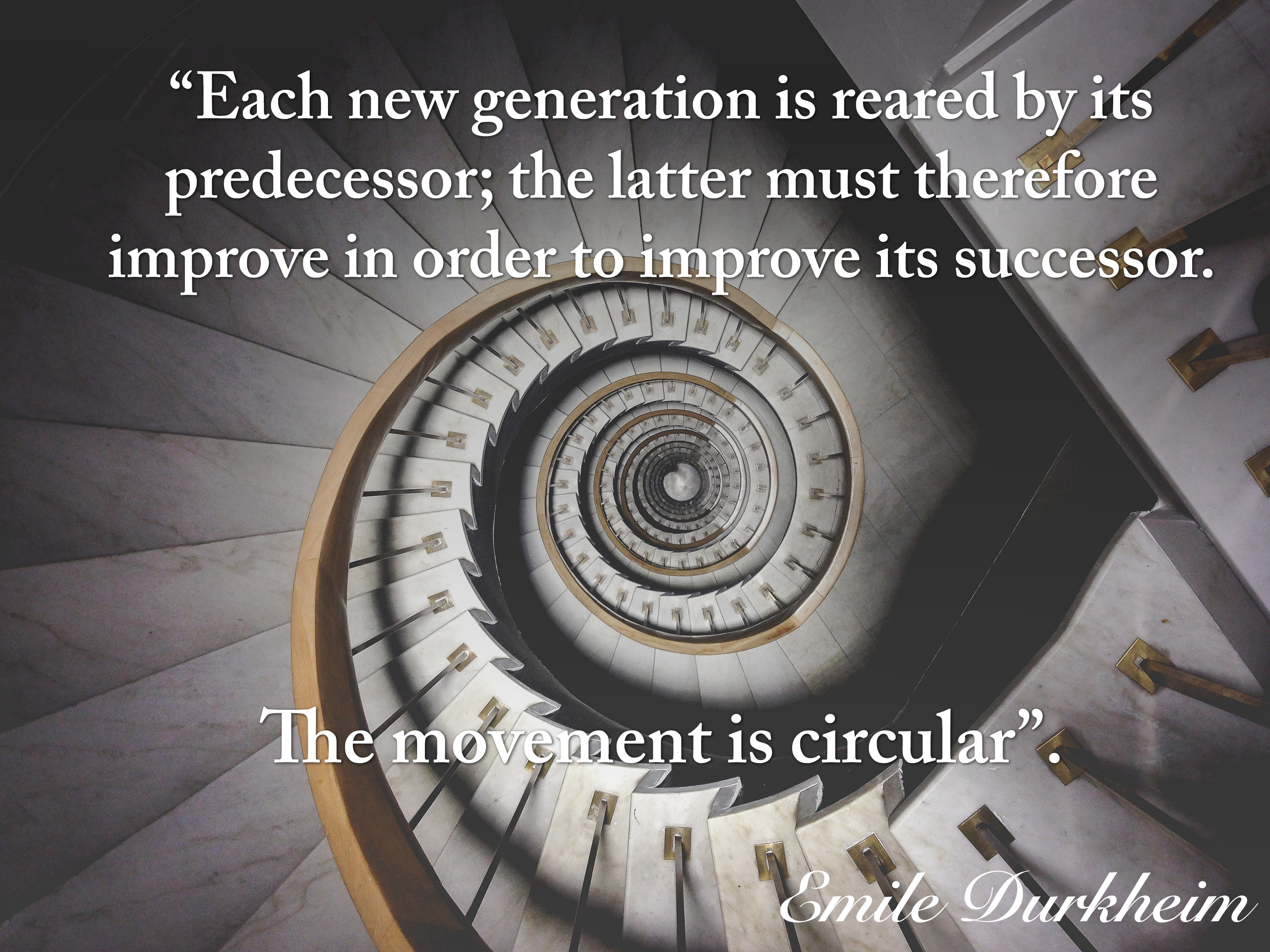Leadership 25 Years after Civil Unrest

Twenty-five years ago, South Los Angeles, often relegated to the shadows of Hollywood, was at the national epicenter of an uprising that led to an empowerment movement. After a long history of civil strife, with a collective voice of resistance, South LA rewrote their narrative as a community demanding equity and justice. From this movement, UMMA was born.

April 30, 1992’s Daily News highlights the beginning of a six day uprising after the Rodney King trial’s verdict, that acquitted four police officers caught on tape beating King during a traffic stop.
It is within that context I wish to discuss the concept of leadership. In moments of conflict, new leaders both listen to others as well as find their own voices to provide the inspiration that people need to overcome life’s seemingly insurmountable obstacles. UMMA listened to the community, showed vision, and made a commitment to a community in flames.
A quarter century later, what is the state of leadership in South LA? What does the new generation that has risen in these past two decades know of what happened twenty-five years ago and does it matter if they know? I can answer the latter very easily. History is our guide, the bellwether against which we size up the potential for a better future, but as President Harry Truman said,
“Men make history and not the other way around. In periods where there is no leadership, society stands still. Progress occurs when courageous, skillful leaders seize the opportunity to change things for the better”.
One must understand the past in order to rise above it.
Leaders owe it to those in the community to pass on the history that has shaped our world; to not only let others know what happened, but also why and how they came to take action. In leading, they should not keep the community in stasis. While leaders must pass on knowledge, they must also pass the baton of activism forward. Leadership is not static, it is organic, fluid, and a continuous conversation about what needs to be done and how we can collectively get there. Although leadership is certainly a form of power, it is not supposed to be power over people – rather, it is a power with people that exists as a synergistic relationship between a leader and his/her followers (Forsyth, 2009). As a Hadith (or saying of the Prophet Muhammad, SAW) notes, “Each of you is a shepherd, and all of you are responsible for your flocks.”

UMMA’s founding members, at the time, students at UCLA & Charles Drew University, came together to offer high-quality healthcare services to South Los Angeles.
A colleague recently gave a sermon wherein he asked how we cultivate leaders from amongst ourselves. How do we take young men and women who have the characteristics and qualities necessary to taking on a leadership role in the community and cultivate them? There is no simple answer.
We must be open to seeing the leadership potential in others and help that take root and grow. We can lead by example, and even “gift” leadership in a sense by connecting our leaders of tomorrow with resources to increase experiential learning and nurture creative thought, although the true test of leadership is whether they take action when they sense the time is right. We must also not be afraid to, at times, let others fail as they strive to grow. Some of life’s most resonant lessons come from failure. We cannot serve as the all-seeing and all-knowing as that is reserved for a greater power than us.
It is reported that at all times and particularly during his time in Madinah, the Prophet Mohammed (SAW) had 20 young people around him. He nourished them, allowing for that synergistic relationship to exist. That’s why it’s no surprise that the next generation was in such admirable condition. This is reflected in the statements of sociologist Emile Durkheim, who wisely observed,

Back to today and where we are in South Los Angeles and in the world. Just this past week, Former President Barack Obama gave his first post-presidential speech in which he noted “The single most important thing I can do is to help, in any way I can, prepare the next generation of leadership.” I couldn’t agree more and hope that you also agree with such a sentiment. Preparing the next generation of leaders requires us to reflect on both our successes and failures, as both provide us with an education.
Following in Obama’s steps:
- To those of you in positions of leadership, I exhort you to not be afraid to pass on that baton and to consider how to impart the lessons you have learned to the next generation of leaders.
- To those emerging leaders, I exhort you to not be afraid to dream big while respecting the path laid out by past leaders, but to do so we must be brutally honest about our own achievements as well as our own shortcomings.
For as William Shakespeare said, “No legacy is so rich as honesty”. May South LA continue to grow new leaders that showcase how South LA is indeed the future of California, the nation and the world.
